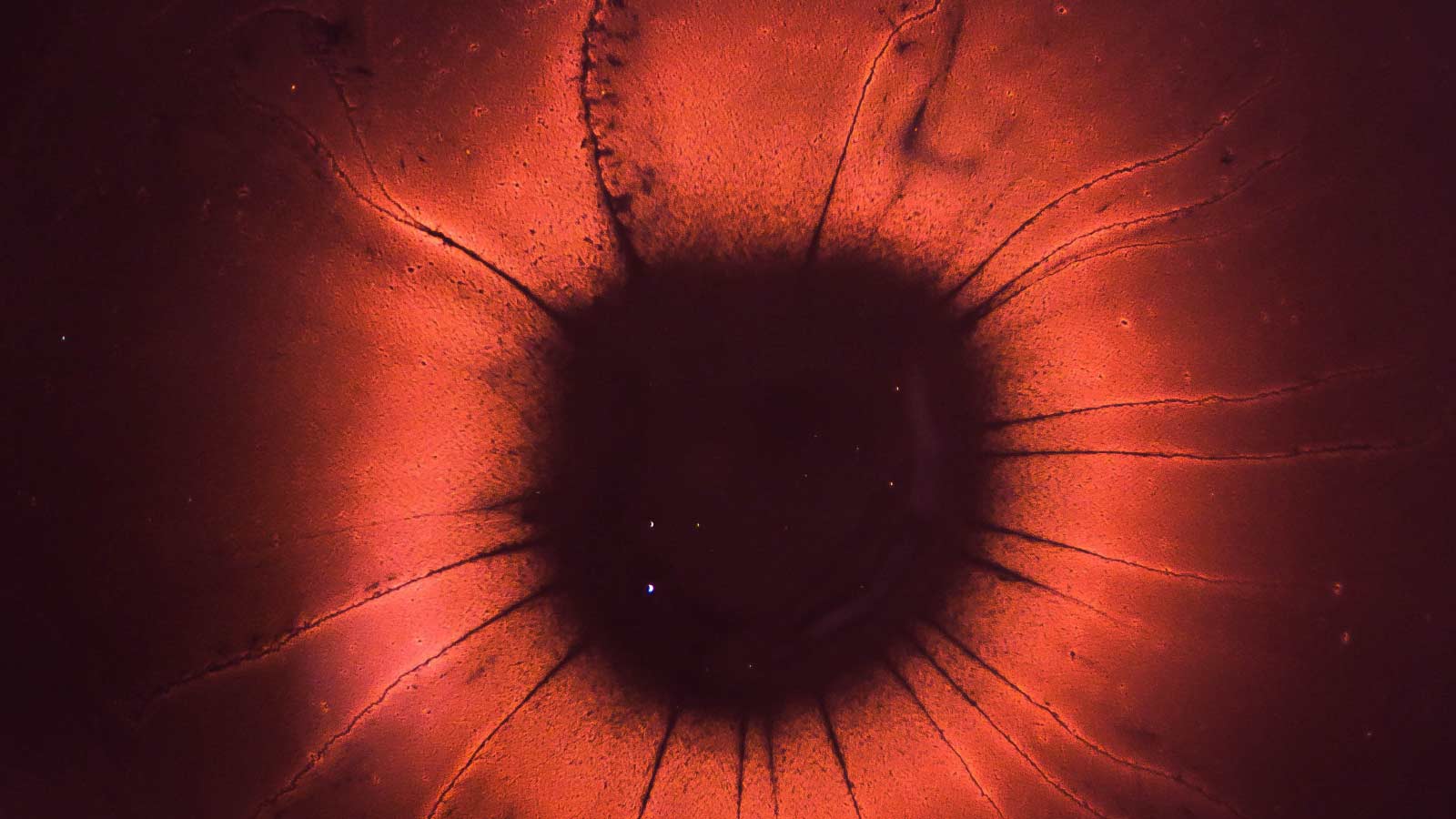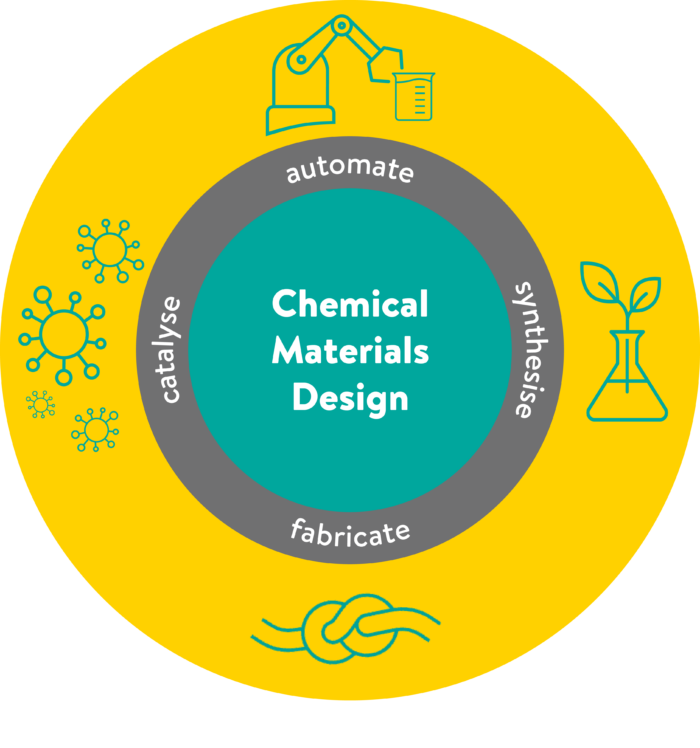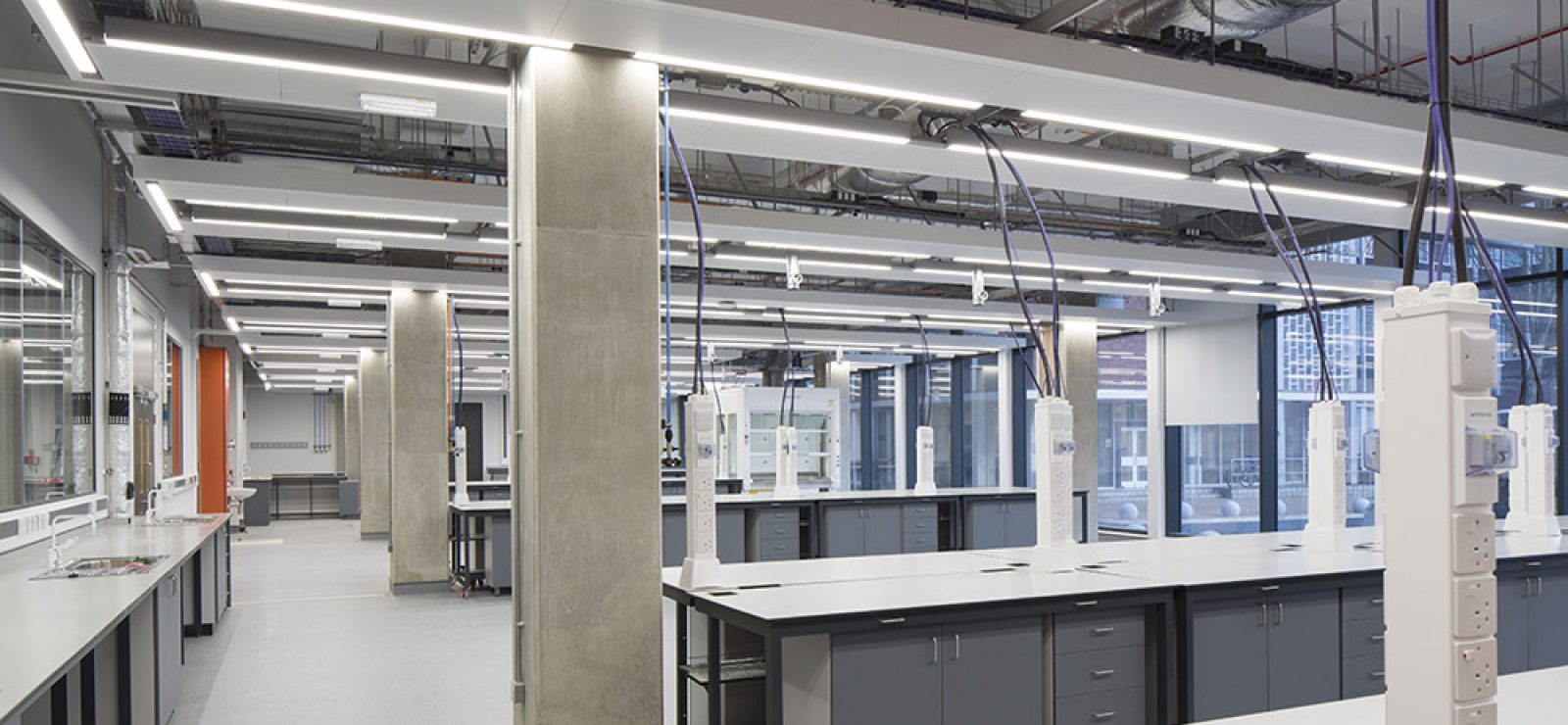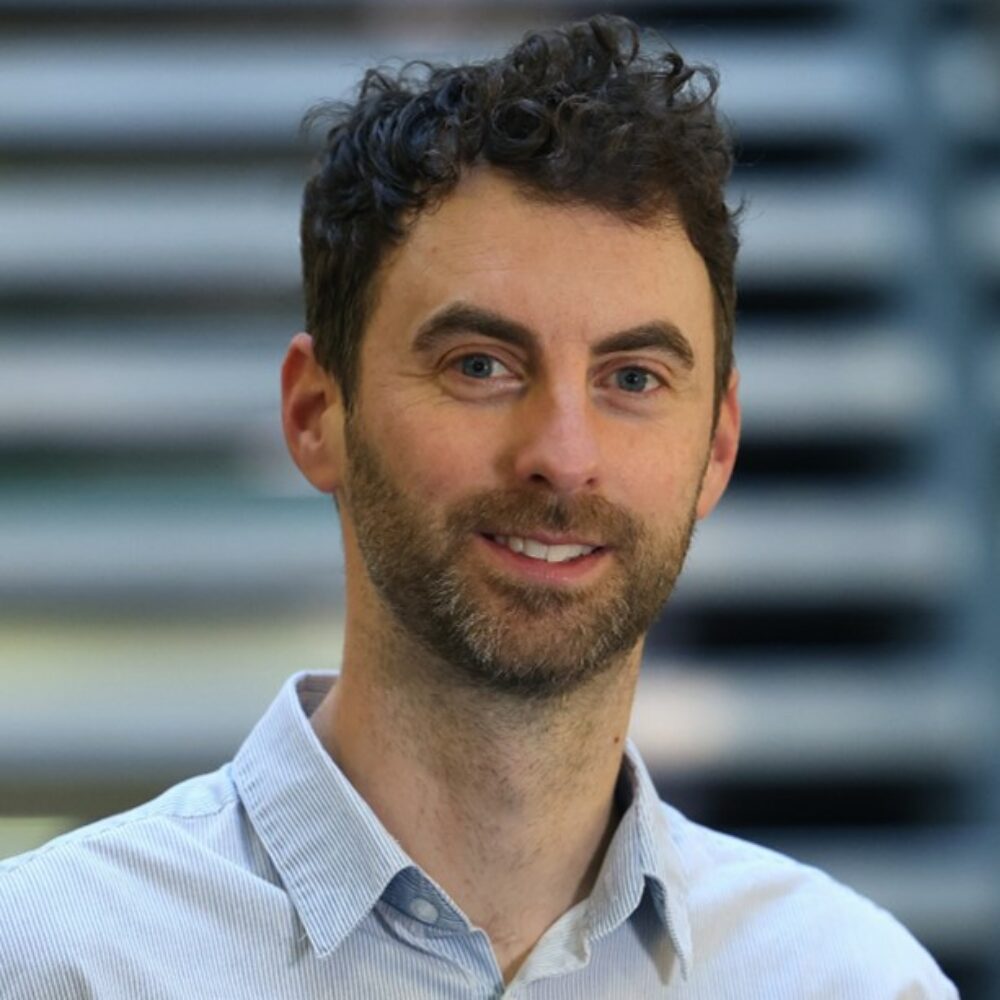This website uses cookies so that we can provide you with the best user experience possible. Cookie information is stored in your browser and performs functions such as recognising you when you return to our website and helping our team to understand which sections of the website you find most interesting and useful.

Research Area
Chemical Materials Design
Vision
The Chemical Materials Design (CMD) Research Area bridges two transformative opportunities—sustainability and automation/robotics—to advance materials chemistry and address the challenges of future materials innovation.
- Driving Sustainability: Supporting the design, evaluation, and circularity testing of materials to foster innovations and improvements in sustainability.
- Accelerating Innovation: Driving the wider utilisation of robotics and automation to advance the discovery and development of materials with desired properties and minimal environmental impact.
- Enabling Faster, Greener Synthesis: Delivering efficient and sustainable synthetic methods for chemical, catalytic, and biological materials.
Introduction and Scope
Developing new materials with tailored properties is crucial for tackling global challenges, including hydrogen production, catalyst design, polymer recycling, and sustainable material solutions.
- At the University of Liverpool, Royce platforms within the Materials Innovation Factory (MIF) facilitate high-throughput discovery supported by autonomous “make and measure” systems and cutting-edge automation technologies.
- At the University of Manchester, the focus is on sustainable innovation, including biomanufacturing and the development of circular polymers with reduced environmental footprints.
CMD’s advanced platforms accelerate research for academia and industry, enabling rapid prototyping, efficient discovery processes, and sustainable materials design. By streamlining traditional technology readiness levels (TRLs), CMD offers faster pathways to market and impactful outcomes.
Current and Future Research
CMD is committed to supporting the UK’s transition to a zero-carbon, agile, and globally competitive industry by prioritising:
- AI-Driven Sustainability: Using robotics and AI to revolutionise sustainable material discovery and innovation.
- Advancing the Circular Economy: Leading polymer research to promote circularity and minimise waste.
- Synthetic Biology: Designing next-generation materials through cutting-edge biomanufacturing techniques.
- Interdisciplinary Collaboration: Connecting expertise across sustainability, automation, and materials research to unlock synergies.
- Tackling Grand Challenges: Leveraging CMD’s integration with other Royce themes—such as electrochemical systems, biomaterials, modelling and characterisation—to address the UK’s most pressing materials challenges.
Links
The CMD area capabilities focus on rapid discovery and testing of small molecules, inorganic materials, polymers, and biomaterials at TRLs 1-2, with strong links to the High Value Manufacturing (HMVC) and Centre for Process Innovation (CPI), Catapults, Knowledge Centre for Materials Chemistry (KCMC) and Organic Materials Innovation Centre (OMIC) to translate our knowledge to larger scales as well as to other national initiatives such as the Circular Economy Centres.


Fairhurst Design Group. MIF Building Liverpool - University of liverpool
Facilities & Capabilities
- State-of-the-Art Infrastructure:
CMD brings together robotics, automation, and AI-driven platforms across Royce facilities, including the University of Liverpool and the University of Manchester. - Integrated Workflows:
Our multidisciplinary workflows empower researchers to develop efficient and comprehensive solutions for complex materials challenges, driving progress in both academia and industry.












